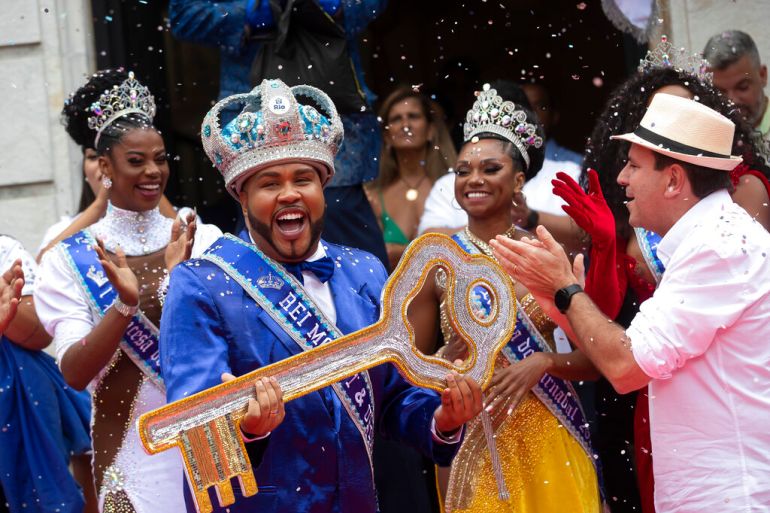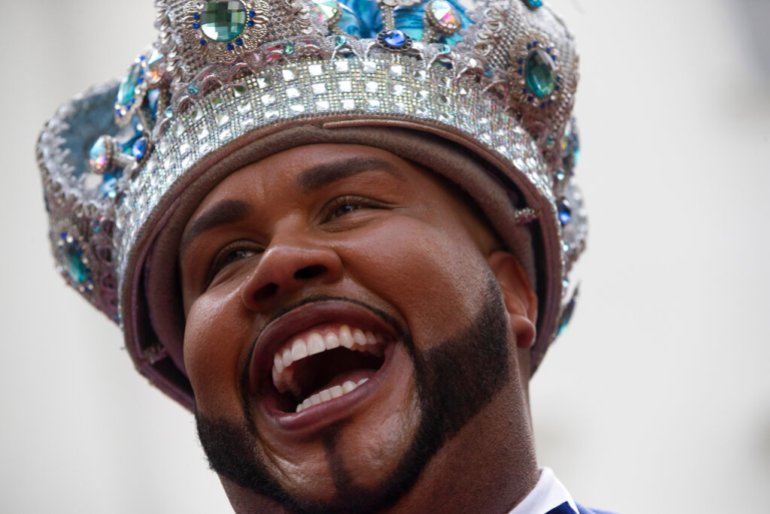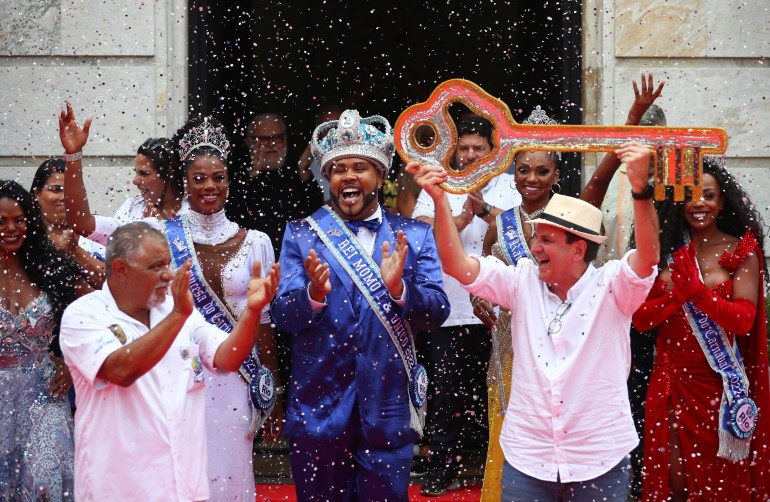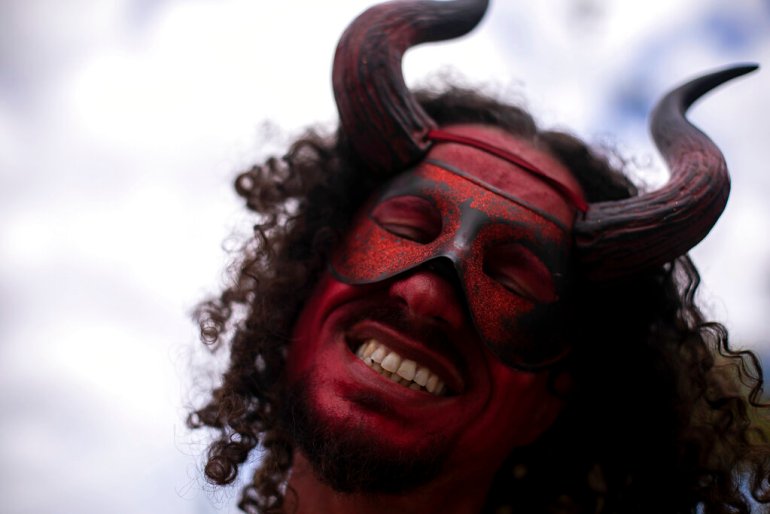Rio’s Carnival celebration is back, but parties will be smaller
Samba school floats and feather-festooned dancers to join parade in Brazilian city as COVID-19 cases decline.

After two years of COVID-19 cancellations, Rio de Janeiro’s mayor has officially opened the world’s most famous carnival celebration, handing a key to the city to “King Momo”, the symbolic ruler of the festivities.
“I proudly announce the greatest show on Earth is back – Long live, carnival,” Mayor Eduardo Paes told a cheering crowd at city hall on Wednesday, handing a giant golden key over to the jovial “monarch” as confetti rained down on them.
Keep reading
list of 4 itemsPhotos: Indigenous march in Brazil to demand land protection
Brazil sets ‘worrying’ new Amazon deforestation record
Brazil for first time invites EU monitors to upcoming elections
Tradition has it King Momo, chosen by a jury with input from a popular vote, rules Rio for Carnival, presiding over the glittering, sequin-studded spectacle of the city’s all-night samba school parades.
This year’s king is 35-year-old Wilson Dias da Costa Neto, chosen based on his “liveliness, sociability, way with words, niceness, happiness, carnival spirit and samba skills”, city hall said.

Decked out in a shiny blue tuxedo and jewelled crown, Neto accepted the key with a huge smile.
It was a welcome change of tone from last year when Paes symbolically handed the key to a pair of health workers in white lab coats and surgical masks after announcing carnival had to be cancelled because of the pandemic.
COVID-19 has claimed more than 660,000 lives in Brazil, second only to the United States in absolute numbers.
But with more than 75 percent of the South American country’s 213 million people now fully vaccinated, the average weekly death toll has plunged from more than 3,000 a year ago to approximately 100 now.
Last celebrated in February 2020, Carnival again looked uncertain this year when fears of a new wave led city authorities to postpone it from the usual dates, just before the Catholic season of Lent.

Two months later, the show is set to go on. The samba school parades will open on Wednesday, with the highly competitive top-flight league scheduled for Friday and Saturday nights.
City officials have not authorised the huge carnival street parties known as “blocos”, but several smaller ones are still expected to be held.
Some organisers said they would turn out, anyway — part party, part protest — and Mayor Paes, a confessed Carnival enthusiast, has said he will refrain from deploying the Municipal Guard.
“City Hall won’t impede people from being in public spaces, from celebrating, but it’s impossible that it happen at such [large] size,” the mayor said in response to a reporter’s question after giving King Momo the city’s key.

Rio’s bigger “blocos”, which typically draw tens and hundreds of thousands of revellers, have fallen into line. They use sound trucks and rely on the city for traffic detours, rubbish clean-up and more to limit disruption.
Rita Fernandes, who leads the Sebastiana association of blocos, said they are holding fire for 2023.
“We don’t want to come out at any cost, our sponsor cancelled, we were discouraged by Omicron. In the end, everything was demobilised,” Fernandes said. “We don’t think the city will support over four days the volume of blocos that there are. We don’t want to create chaos in the city.”
Others are unconvinced, like Tomas Ramos, a saxophonist and member of a group that organised a protest in downtown Rio on April 13.
He shouted to musicians and spectators gathered at the steps of Rio’s municipal theatre, rallying them for full-bore Carnival festivities.

“Down with the turnstiles that transform the city into big business, where profit prevails over life, where money is freer than people,” he said.
Normally, Carnival moves some $800m for Rio’s economy and creates at least 45,000 jobs, according to official figures.